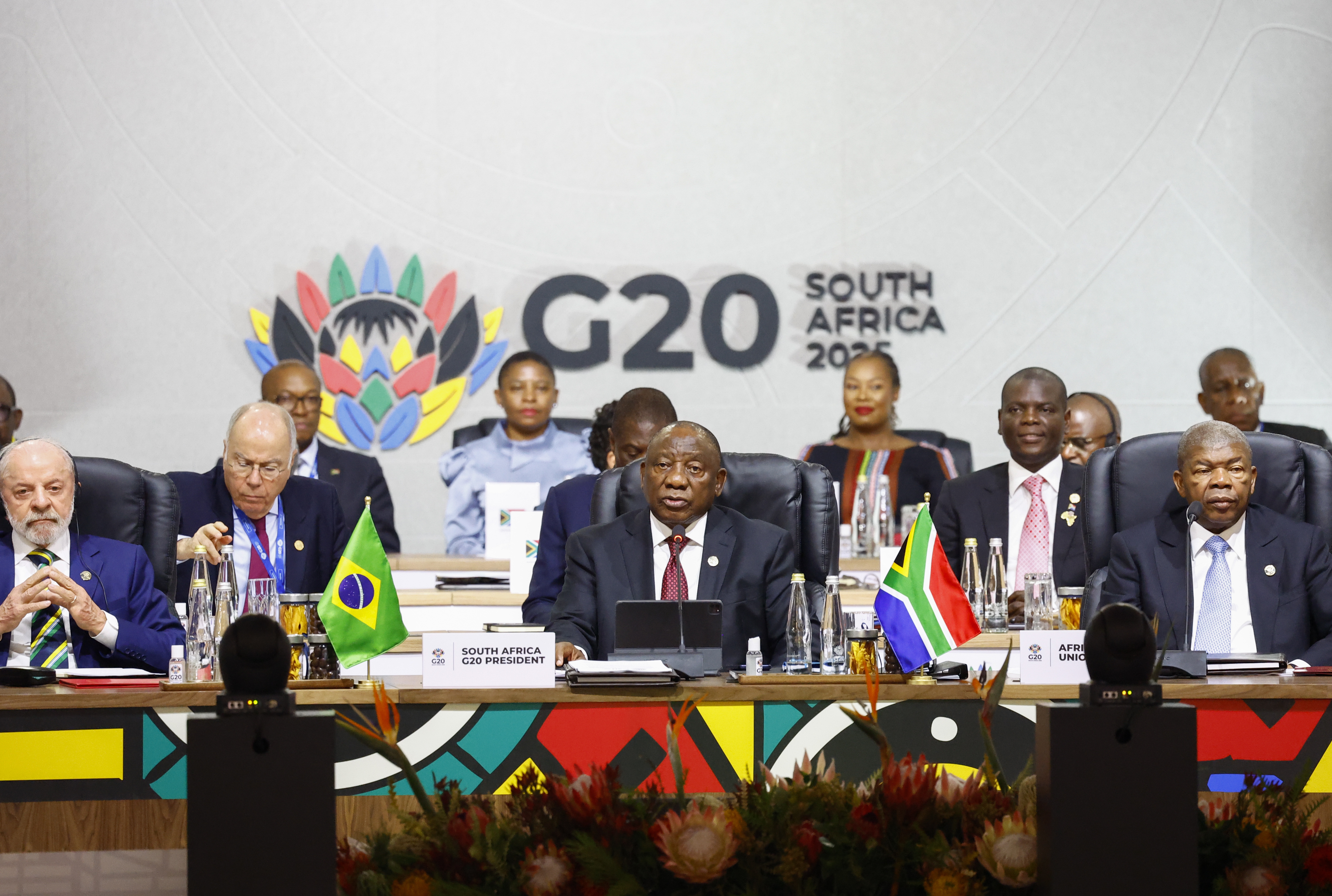/file/dailymaverick/wp-content/uploads/2025/10/label-analysis-2.jpg)
Critical minerals were in the spotlight in the alphabet soup of G20 and B20 meetings, but one ingredient was missing from the pot where this mix was being stirred: African markets for the rich resources strewn across the continent.
Much of the focus at meetings and panel discussions was on “beneficiation” – an awkward word unrecognised by the spell checker on my device that effectively means processing or adding value to raw ore.
Read more: Six G20 terms you need to know
But an implicit underlying assumption is that while this will enable African industrialisation, the processed ore will be destined for other markets such as China, India, Europe and North America.
The G20 Critical Minerals Framework (CMF), it must be said, is non-binding and voluntary. The US has not even signed up to it and China may treat it with a pinch of salt.
“It [the G20 CMF] fully preserves the sovereign right of mineral-endowed countries to harness their endowments for inclusive economic growth, while ensuring economic, social and environmental stewardship, conservation, local community participation, and supply security,” says the G20 Leaders’ Declaration, adopted at the summit in Johannesburg on Saturday.
“Critical minerals should become a catalyst for value-addition and broad-based development, rather than just raw material exports.”
Read more: Exclusive: Inside the adopted G20 declaration — US handover likely low-key and offsite
Several years ago, this correspondent asked a former CEO of Kumba Iron Ore if the company had ever exported any of its iron ore to an African country.
After a brief pause, he said he recalled sending a shipment to Egypt once.
“To limit this to beneficiation in the on-selling of these minerals is insufficient an ambition for a continent that still needs so much development in terms of infrastructure and therefore the end use,” Mzila Mthenjane told Daily Maverick on the sidelines of a B20 critical minerals event hosted by Valterra Platinum.
“And South Africa is fortunate in being so well endowed with many of the industrial and critical minerals for the world to transition. And we have existing beneficiation infrastructure.”
Indeed we do, but much of it – such as ferrochrome smelters and steelworks – lies idle because of soaring power costs, regulatory blunders and China’s industrialisation drive which has cast a long shadow over the capacity of African industries to compete.
What this means
Africa’s path to industrialisation will only be realised when there are significant African markets for African resources. Adding value through processing is an important first step, but Africa’s potential will not be fully realised until these final products also find African markets.
Still, South Africa does process metals to a final product – notably platinum group metals and gold.
Read more: Beneficiation rhetoric debunked, SA does process its metals into final products – for now
“We mine, we process and we get PGMs to final product. You can make a ring, you can make a catalytic converter with our product,” Valterra CEO Craig Miller told Daily Maverick.
Asked about the main markets for its metals, he went through a list of the usual suspects: China, Europe, the US.
“I would be delighted to sell our product to African markets,” he said. But outside of South Africa, they don’t exist.
The discourse around moving away from “pit to port” to “pit to processing to port” still has non-African markets as the final destination. And, of course, business is going to aim its sights on the economies where there is a market for its product.
This also throws South Africa’s memorandum of understanding (MOU) with the European Union – signed on the sidelines of the G20 – into sharp relief.
Scant on detail, as such things typically are at first, the MOU presumably signals European appetite for Africa’s mineral wealth, home to 30% of known reserves in the world.
“The agreement seemingly sits at odds with African Mining Vision (2009) and African Green Minerals Strategy launched in 2025, which emphasises potential mineral processing and consumer markets on the continent to spur regional industrialisation,” Chris Vandome, a senior research fellow at Chatham House’s Africa programme, told Daily Maverick.
“Ambitions for regional EV battery chains, including to power electric mining vehicles, are a long way from being realised. However, while the agreement acknowledges the desire for value addition at source, it falls short of offering tangible and practical mechanisms to develop regional markets.”
The bottom line: “EU supply chain security prioritised over wider development potential.”
Still, discussions around such issues are vital. Mining is indeed critical to the global economy – it is the keystone industry that has emerged as the planet’s improbable saviour.
Read more: Keystone industry - how mining became the planet's unlikely saviour
“It’s important to elevate the importance of mining,” Miller said. DM





 South African President Cyril Ramaphosa speaks alongside Brazil's President Luiz Inácio Lula da Silva and Chairperson of the African Union, João Lourenço at a plenary session on the opening day of the G20 Summit in Johannesburg, on 22 November 2025. (Photo: EPA/THOMAS MUKOYA / POOL)
South African President Cyril Ramaphosa speaks alongside Brazil's President Luiz Inácio Lula da Silva and Chairperson of the African Union, João Lourenço at a plenary session on the opening day of the G20 Summit in Johannesburg, on 22 November 2025. (Photo: EPA/THOMAS MUKOYA / POOL)